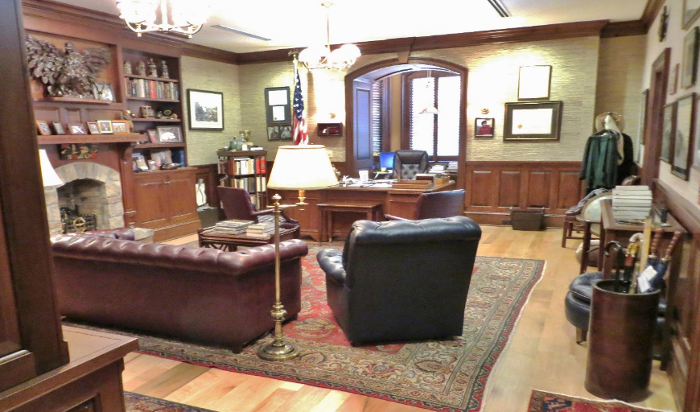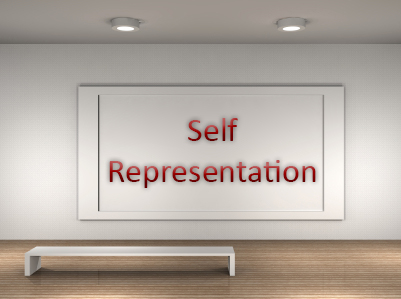
Monthly Archives: May 2010
State v. Sublett: Defendant’s Right to be Present at Trial DOES NOT Extend to Questions Submitted by Jury and Answered in Judge’s Chambers

In State v. Sublett, the WA Court of Appeals held that an in-chambers conference held by the trial judge in response to a juror’s question did not violate the defendant’s his right to an open and public trial. In general, in-chambers conferences between the court and counsel on legal matters are not critical stages of the proceedings except when the issues involve disputed facts.
A jury entered verdicts finding co-defendants Michael Sublett and Christopher Olsen guilty of first degree murder. Sublett and Olsen appealed, asserting that the trial court violated their public trial rights and their right to be present by holding an in-chambers conference to address a question submitted by the jury during its deliberations and that the trial court violated their due process rights by refusing to answer the jury’s question.
The Court reasoned that the Sixth Amendment guarantees criminal defendants the right to a public trial. However, the court also determined that “[a] defendant does not . . . have a right to a public hearing on purely ministerial or legal issues that do not require the resolution of disputed facts.”
Here, the trial court’s in-chambers conference addressed a jury question regarding one of the trial court’s instructions. This was a purely legal issue that arose during deliberations, and did not require the resolution of disputed facts. Thus, the defendants’ right to a public trial did not apply in this context.
More important, questions from the jury to the trial court regarding the trial court’s instructions are part of jury deliberations and, as such, are not historically a public part of the trial. Because the public trial right does not apply to a trial court’s conference with counsel on how to resolve a purely legal question which the jury submitted during its deliberations, we hold that the trial court did not violate the appellants’ public trial right by responding to the jury’s question in writing.
The court further reasoned that because the in-chambers conference held in response to a jury question was not a critical stage of the proceedings, the trial court did not violate the appellants’ right to be present. A “critical stage” is one where the defendant’s presence has a reasonably substantial relationship to the fullness of his opportunity to defend against the charge. But in general, in-chambers conferences between the court and counsel on legal matters are not critical stages of the proceedings except when the issues involve disputed facts.
The in-chambers conference here was not a critical stage of the proceedings because it involved only the purely legal issue of how to respond to the jury’s request for a clarification in one of the trial court’s instructions. Accordingly, the appellants’ right to be present did not apply in this context.
My opinion? Shady. I’ve tried cases where jurors asks/submits questions to the judge while they deliberate. Typically, the judge reads the question on the record, and in the defendant’s presence. The attorneys and judge either formulate an agreed answer the question or choose to not answer the question.
In my mind, this is an important stage of the proceedings. jurors decide guilt and innocence based upon the answer to the question! How is this not important? Why shouldn’t the defendant be present to hear the question and answer(s)?
Again, shady. this decision flies in the face of the WA Supreme Court’s State v. Paumier, a case which I blogged about earlier this month.
Please contact my office if you, a friend or family member are charged with a crime. Hiring an effective and competent defense attorney is the first and best step toward justice.
Graham v. Florida: Court Strikes Down “Cruel & Unusual” Sentencing on Minor

In Graham v. Florida, the U.S. Supreme Court held it unconstitutional to sentence a juvenile offender to life in prison without parole when the crime does not involve murder, given the Eighth Amendment’s ban on “cruel and unusual” punishment.
Petitioner Graham was 16 when he committed armed burglary and another crime. under a plea agreement, the Florida trial court sentenced Graham to probation and withheld adjudication of guilt. Subsequently, the trial court found that Graham violated the terms of his probation by committing additional crimes. The trial court adjudicated Graham guilty of the earlier charges, revoked his probation, and sentenced him to life in prison for the Burglary. Because Florida abolished its parole system, the life sentences left Graham no possibility of release. He challenged his sentence under the Eighth Amendment’s Cruel and Unusual Punishment Clause.
The U.S. Supremes sided with Graham, and reasoned the inadequacy of penological theory to justify life without parole sentences for juvenile nonhomicide offenders, the limited culpability of such offenders, and the severity of these sentences all lead the Court to conclude that Graham’s sentence was cruel and unusual. Moreover, defendants who do not kill, or foresee that life will be taken are less deserving of such punishments than are murderers.
Finally, the court reasoned that serious nonhomicide crimes may be devastating in their harm, but in terms of moral depravity and the injury to the person and to the public, they cannot be compared to murder in their severity.
My opinion? The U.S. Supremes made the right decision. It seems Draconian to impose a life sentence on a minor who committed a non-homicide crime. Period.
Please contact my office if you, a friend or family member are charged with a crime. Hiring an effective and competent defense attorney is the first and best step toward justice.
Speeders On Strapped Cities’ Radar

Forget about traffic safety. In reality, traffic citations are a revenue-builder for municipalities undergoing the brunt of a deteriorating economy, budget cuts and layoffs.
“We were facing layoffs, and we were trying to think outside the box,” says Police Chief Dean McKimm of Canton County. “I’ll be very blunt about that: It does save jobs. It was kind of a no-brainer.”
Other cities & counties know there’s a lot of money to be made in stepped-up traffic enforcement:
- In January, Georgia’s new “super-speeder” law kicked in. Get caught going 85 mph or more on a four-lane road in the Peach State and you’ll pay $200 on top of the regular ticket, which is often well more than $100. You’ll do the same if you go 75 mph or more on a two-lane road. Authorities said it filled a niche between regular speeding and reckless-driving violations. In February, super-speeder tickets totaled 1,084. Tennessee is considering a similar law.
- A Colorado law that went into effect in 2009 doubled fines for speeding (the supporting information noted it would raise about $12 million annually for the strapped state). Another law has made speed guns mandatory in road-work zones.
- In 2009, California added a $35 assessment to all traffic violations to help renovate 41 courthouses statewide. You’ll pay even if the courthouse where you show up to pay the ticket isn’t getting so much as a coat of paint.
- The Massachusetts Turnpike Authority said it would collect an additional $1.2 million in fines from speeding tickets in 2008 to make up for lost revenue when troopers from the Massachusetts State Police were transferred the previous year to work around Boston’s “Big Dig” project.
Please contact my office if you, a friend or family member are charged with a crime. Hiring an effective and competent defense attorney is the first and best step toward justice.
State v. Paumier: Court Upholds the Right to Public Trial & Self-Representation

In State v. Paumier, the WA Court of Appeals reversed the defendant’s convictions because the trial court improperly (1) excluded public citizens from a portion of his trial, and (2) denied his right to represent himself.
Mr. Paumier was charged with Burglary and Theft. Jury selection involved questioning jurors in chambers and recording their responses. The public was not allowed to watch jury selection. The trial court stated at the outset that potential jurors who preferred to answer questions privately to avoid possible embarrassment would be taken into the judge’s chambers.
Several jurors indicated during the course of voir dire that they preferred to answer certain questions in chambers. The judge and the parties questioned five jurors in chambers, recording the jurors’ responses. Jury selection was completed that same day.
The following day, the trial court permitted the State to amend the information. Paumier then pleaded not guilty and asked to represent himself, stating:
“I just don’t feel like a — I feel like there’s [sic] things about the trial getting this far that it shouldn’t have. And I feel that my attorney should have spoke [sic] up for me instead of getting pissed off at me in court. And I just don’t feel like he’s doing his job like he should. I don’t feel it should have gotten this far, and I’d just rather present my, you know, case myself.”
His request was denied because the lower court decided that it came too late.
The WA Court of Appeals reasoned, however, that Paumier’s right to a public trial was violated when the court allowed the jurors to be questioned privately in chambers. The guaranty of open criminal proceedings extends to voir dire. Additionally, the recent U.S. Supreme Court’s Presley v. Georgia makes it clear that court room closures should be rare and the court must consider alternatives prior to closing the court room.
The trial court also abused its discretion when it denied the defendant his request to represent himself at trial. Here, there was no request for continuance, and the defendant’s request was clear. There was no evidence that trial would have been delayed, or that granting his request would have impaired the administration of justice.
My opinion? Good decision. Kudos to the defendant for stating, on the record, his preference to represent himself after the judge and attorneys conducted voir dire in chambers, and away from the public eye. Mr. Paumier correctly followed his instincts. I hope Mason County learns a lesson.
Please contact my office if you, a friend or family member are charged with a crime. Hiring an effective and competent defense attorney is the first and best step toward justice.






